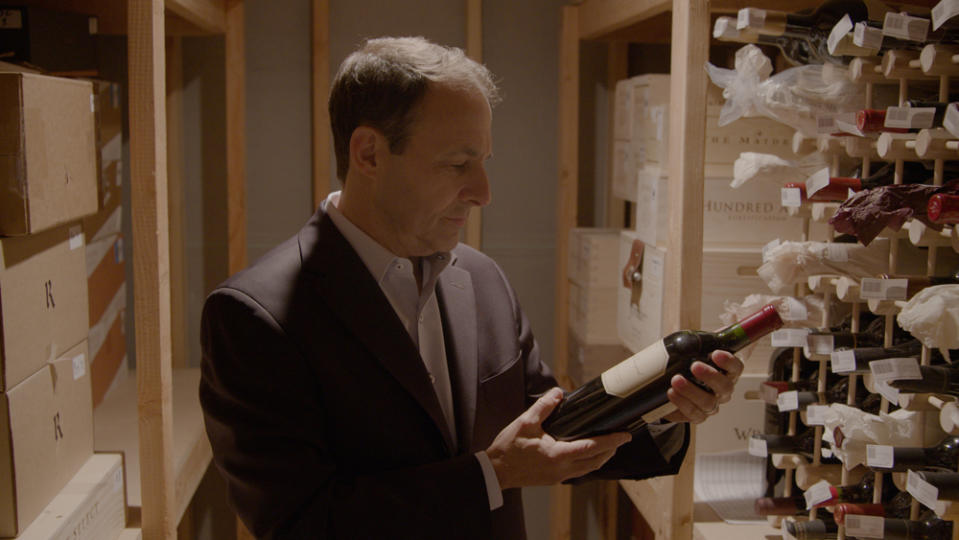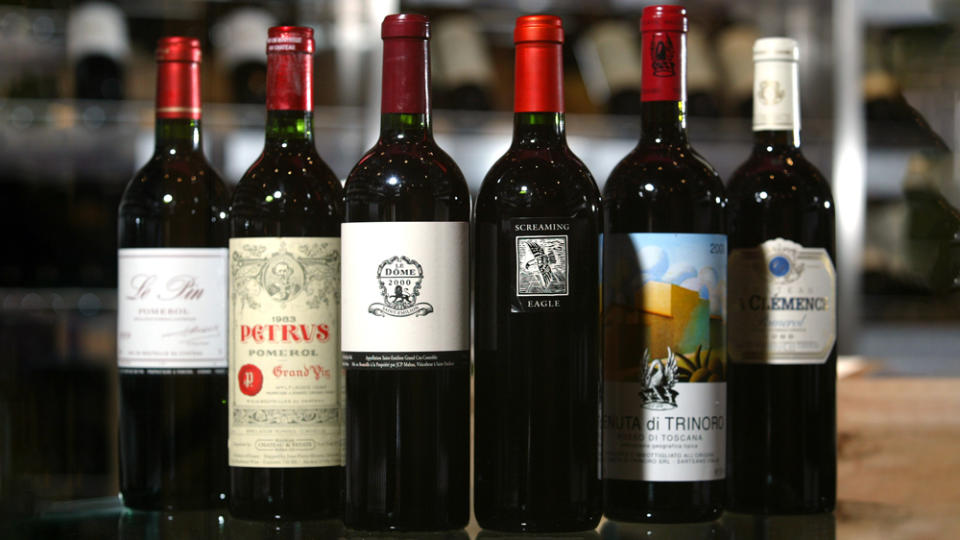How to Know When to Drink, Hold, or Sell Your Most Prized Wines

When we host wine tastings, we’re often asked by participants when they should drink a particular wine that they’ve been holding for years. The person asking is usually a white-haired gentleman with a slightly shaky voice, and the wine in question is often a unicorn such as Screaming Eagle 1992 or Petrus 1981 that was acquired years ago, before wines like this could fetch a year’s worth of college tuition. We may or may not ask how old he is, which is really beside the point, but we usually advise him to drink that wine the minute he gets home, or at least open, decant, and drink it within the hour.
There are many reasons why the folks who collect wine don’t drink some of their best bottles. Perhaps they’ve been saving them for a special occasion that never materialized or for the right group of wine lovers with which to share them. Or maybe the owner’s taste has moved on; while once upon a time he thought that Napa Cab or Right Bank Bordeaux was the be all and end all, maybe he is living in a warmer climate and eating lighter meals and has developed a taste for Rhône or Loire whites. Whatever the case, many of the finest wines in the world are not enjoyed during their peak drinking window, and, unfortunately, may never be. But you don’t have to be one of those collectors. There are effective strategies for getting the most out of your cellar, be that understanding the optimal drinking windows or rebalancing your collection so what you have on hand stays in line with your tastes.
More from Robb Report
Welcome to The Oeno Files, Robb Report's New Weekly Wine Newsletter
Robb Report's Wine Club Will Give You Exclusive Access to Exceptional Napa Valley Reds
The Golden Vines® Fine Wine, Rare Spirit & Experience Auction Is Back
It all begins at the point of purchase. When buying wine, you should consider the main reason you’re acquiring it. Are you planning to drink it? Are you hoping it will increase in value so you can sell it on the secondary market? Do you just want it for bragging rights? These are all valid motives for adding to your collection, and it might make sense to organize your bottles based on whether you are planning to open them soon or store them long term for a money-making opportunity. An app-based organizational tool such as InVintory is perfect for knowing the location of the bottles in your cellar so you can find the one you’re looking for, whether it’s to pour with your buddies or ship to an auction house. Whether we’re talking about wine, watches, or cars, once you have multiples there are ones that go into heavy rotation and others that are only hauled out for special occasions. The drawback to wine is that once you open it, it’s gone. And once you’ve waited too long to open it, it’s even more gone.

With that in mind, it’s wise to look at the categories you’ve bought into and consider how long they may be drinking at their prime. This may be a controversial statement, but with few exceptions most wine will taste better within its first 20 years of life, after which it will begin to decline in palatability for most people. Some grapes have naturally longer lifespans due to tannic structure and acid levels; in general, Cabernet Sauvignon has greater longevity than Pinot Noir. For the most part, red wines will outlast whites, but don’t tell that to a Riesling producer from Germany or Alsace. On top of that, we have to take vintage variation into account, as overall ripeness, freshness, and acidity will affect a wine’s lifespan. This is where paying attention to vintage reports, reading professional wine columns (ahem, we’re here to help), and attending wine tastings to get a feel for how wine evolves come into play. And if you just don’t think that Thanksgiving with your in-laws is the right time to open your finest wine, look for some La Paulée-style events and dinners at which you can show off your bottles to other collectors while also enjoying tastes of their treasures. The bonus here is becoming part of a wine community in which you can share bottles and trade advice.
If you are just getting started on building a wine collection, it is also a good idea to bring in professionals who can assist with assessing storage options and offer guidance on which categories and individual bottles are worth seeking out. And if you have been acquiring bottles for decades, it may be time to seek direction as to which bottles are worth selling, what the best options for selling are, and which bottles you should just open and savor.
We recently spoke with two experts in the field, Jeff Anthony and Jeff Smith, the CEO and “Chief Wine Officer” of Vino Vault, respectively, which provides storage, logistics, and advisory services to collectors. In addition to multiple locations in N.Y. and L.A., they are also in Dallas, Denver, and Houston, with several more locations on the horizon. “Our mission has always been simple, to put the joy back into wine collecting,” Anthony explains. “For wine owners, a big piece of the puzzle is knowing what you have and when to drink it; proper inventory and storage is key to this.”
Taking stock of a growing wine inventory is also a way to make sure the collection you have is the one you actually want, as Smith has seen plenty of people’s tastes evolve. “I see something like a story arc for a lot of collectors, who start with buying domestic varieties and graduate to Bordeaux and Burgundy and other things as they are exposed to more and have more money to spend on wine,” he tells us. “A few clients have said, ‘I’m through with these big California Cabernets,’ or whatever, and make a wholesale change. More often, though, I see people who need to do some weeding out.”

If you’re serious about selling a collection and you’re more of an independent, DIY type, major auction houses such as Sotheby’s will appraise and then purchase entire cellars if their team finds that your wines, storage conditions, and provenance are up to snuff. The auction market is a great source for bottles that you may have missed the first time around, and smaller auction houses will take on a few cases rather than a whole collection.
However, you may not want to go through the process of selling your wine on your own. That’s where you might consider hiring a firm with experience managing collections and navigating markets. Companies like Chai Wine Consulting and Domaine can help you get the best price for your bottles—as can Vino Vault. Smith has contacts at all major auction houses, but he has also cultivated a network of collectors that can move bottles without the uncertainty of the bidding process. Vino Vault’s access to clients’ inventory gives them not only a better sense of a fair market price, but a group of potential buyers, too. “When assessing a list for sale, I can sometimes identify where we might have a client who is buying what’s being offered and work out a price that’s a win-win,” Smith says. “So we look for those opportunities within our Vino Vault clientele.”
All that said, sometimes the most satisfaction can be gained from carefully popping the cork and enjoying the bottles you have lovingly stored for years. After all, you bought them for a reason, and although we have read that wine consistently outperforms the S&P 500, nobody ever washed down a perfectly grilled porterhouse with their investment portfolio.
Want more exclusive wine stories delivered to your inbox every Wednesday? Subscribe to our wine newsletter the Oeno Files today!
Best of Robb Report
Why a Heritage Turkey Is the Best Thanksgiving Bird—and How to Get One
The 10 Best Wines to Pair With Steak, From Cabernet to Malbec
Sign up for Robb Report's Newsletter. For the latest news, follow us on Facebook, Twitter, and Instagram.


